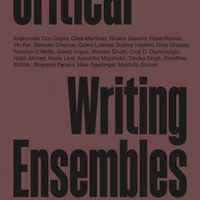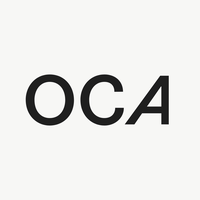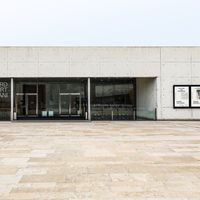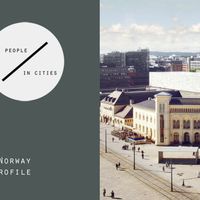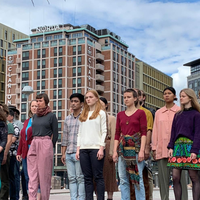Norway | 2017 Year of indigenous art and thought

The Office for Contemporary Art Norway (OCA) is delighted to announce the programme for 2017—a year dedicated to indigenous art and thought—which marks a commitment to urgent, contemporary indigenous issues of global importance, and honours the 100th Sami Jubilee which will commence in Tråante (South Sami for Trondheim) on February 6, 2017.
The 2017 programme opened at Small Projects in Tromsø on January 19, with a conversation between Sami artist Máret Ánne Sara and OCA Director Katya García-Antón, addressing the legacy of colonialism on indigenous communities and their artistic strategies today. Sara’s project Pile o’ Sápmi points to the Norwegian state’s current enforcement of a law that seeks to reduce the reindeer population across northern Norway/Sápmi, and which has been met with strong resistance from the reindeer-herding community.
On April 20–21, OCA presents "Museums on Fire" in Oslo and subsequently in Kárášjohka (Northern Sami for Karasjok). Staged within a specially commissioned scenography created by Sami artist Anders Sunna, "Museums on Fire" is a symposium addressing the entanglement of art institutions with the colonial and modernist ideologies that created them. Artists, curators, academics of indigenous and non-indigenous descent are asked to consider the spaces and processes through which indigenous artistic practices, past and present, should be addressed today. What would a non-colonial museum look, feel and sound like? Is it enough to broaden the modernist art historical canon through the politics of inclusion? And is the museum per se an obsolete model for indigenous practices? Should novel constellations of thought and practice be sought to affirm and mediate the indigenous discourses of the future? In the light of a marked increase in attention to indigenous artistic practices across the globe, this question is most profoundly felt and in need of finding appropriate proposals.
Confirmed speakers and contributing artists include Raven Chacon, Clementine Deliss, Carola Grahn, Geir Tore Holm, Anna Hudson, Eva Dagny Johansen, Duane Linklater, Anne May Olly, and Gerald McMaster. Curated by Katya García-Antón, with Antonio Cataldo.
Sami artist and member of the legendary Máze group (1978–82) Aage Gaup will discuss his practice in Oslo in April. As a scenographer and sculptor, Gaup has developed a unique visual language for indigenous scenography. His first scenographies were developed in 1979 within the context of Alta Action, an uprising which brought together indigenous and environmental activists and led to the creation of the Sami parliament.
Led by OCA and OSLO PILOT, the IKT (The International Association of Curators of Contemporary Art) Congress 2017 will take place in Oslo, followed by a post-congress in Tromsø in collaboration with institutions and contemporary art initiatives in the north of Norway/Sápmi. The Congress includes a Symposium which will take the centenary of the first Sami Congress as its starting point—an event which ultimately led to the signing of the Sami Act. The Symposium will go on to address the significance of decolonisation and indigenous and ecological discourse on contemporary art and related cultural thought around the world.
The Oslo Symposium is curated by Katya García-Antón (Director/Curator OCA), Eva González-Sancho (Curator OSLO PILOT) and Per Gunnar Eeg-Tverbakk (Curator OSLO PILOT), in collaboration with the IKT Board.
OCA’s 2017 programme will culminate with the exhibition Let the River Flow. The Sovereign Will and the Making of a New Worldliness opening in October 2017. The exhibition will discuss the recent history of Sami artistic activism in and across Sápmi (in Norway, Sweden, Finland and Russia), contextualising it within an empowering planetary indigenous discourse which does not only explore post-colonial legacies and ecological concerns, but questions the very notion of modernity itself.
Read full programme details on e-flux
Similar content
posted on
09 Mar 2017
posted on
27 Aug 2013
deadline
30 Jun 2022
posted on
19 Nov 2013
By Kerrine Goh
18 Jul 2013
from - to
01 Jan 2023 - 25 May 2024

